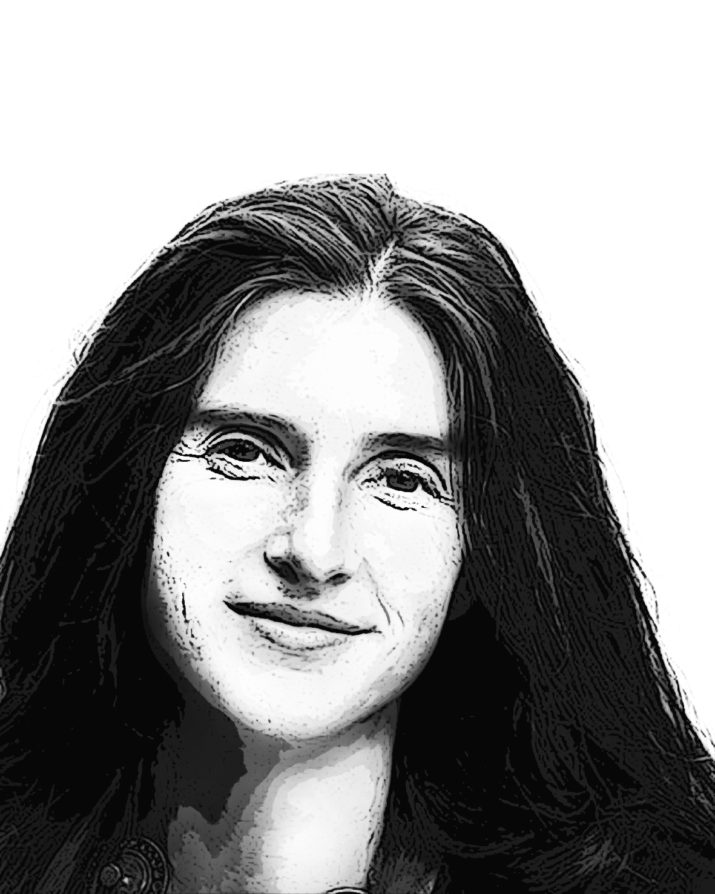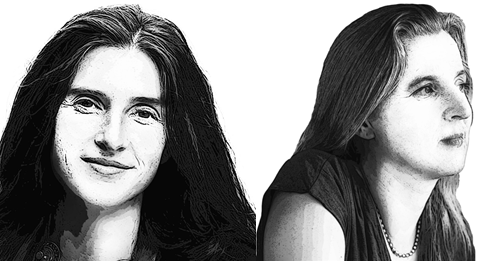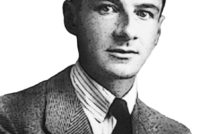

Translated from the German by Monika Cassel
The Heroes
The heroes climbed up the hill. Then they began to do battle. Yes, that was in the red of eveningtime. First they split each other’s armor with their halberds, then came the helmets, the bevors, the armbracers and greaves. With that, the clanging ended. The heroes battled on silently; they had tossed their blunted halberds into the knee-high grass. Now they strangled themselves with their bare hands. Their long shadows reached all the way down to where we were standing, and thus we groaned in their grip. Each hero fought alone, against himself, because we didn’t want any of them to die. They smashed their finger joints together. They dislocated their shoulders and twisted their hips so that it seemed that we could hear them cracking. Then the sun came up behind the hill, and we went to touch the heroes now that they had finished their battle. They were unscathed and whole. The wind rustled in our clothes, but the heroes’ naked skin gleamed. The landscape was golden when we turned to go and spied the helmets and armor, which had rolled down the hill, lying on crushed snail shells. When we picked up the armor it was full of little slimy bodies, and the rising sun didn’t reflect off of it the way the setting sun had. Only then did we begin to cry.
That evening we came back to the same hill, and the heroes were gone. We stood in the dark from sunset to sunrise, watching the wind flatten the silvery swaths of grasses. We only left once the sun had risen high up in the heavens. On that day we did not cry.
And suddenly it came to pass that the heroes appeared in our houses unannounced. That was on a Tuesday, and nobody was prepared. The lintels were too low for their tall bodies; they bumped their heads against them several times. We felt it like hammers’ blows on our foreheads, but the heroes’ faces didn’t display even a trace of pain. We carried dishes of food and our children outside to them. As soon as they came near the heroes, the children became quiet. We hoped that the heroes would bless them. But before they had enjoyed the dishes we had brought them, they began once again to wrestle against themselves. We were happy that the children were present to see the battles, because that was how they would grow to be strong. Then the heroes walked away down the dusty road, and the dust they kicked up made our eyes water.
Now the heroes stayed away for a long while, and in this time nothing happened except that the children grew. A few of us recognized a hero among our own children but told no one. We noticed this because children were laid out on the hilltop at night, and in the mornings we saw flattened grasses, as if once again there had been battles. When the children had reached the size of full-grown men and women, the heroes came in a windless night and took them away. As they walked off, they turned around once more, and we saw that they were chewing on bees. It was good for us to see our heroes eating again after all this time. We cried as if it were the first time.
Out of Area: Hunting House to the Golden Vixen
September the shadows lie as if piled up
behind the carriage house
we barricaded ourselves in because once again
what we were shouting was pointless:
slogans like at Easter ‘ninety-nine then
we heard the dogs yapping – we saw
the beautiful vixen crossing rapidly into the state forest
parole dimly recalled royal hunts
in the forest of Fontainebleau that old
forest of the alliance and here for a long time
the border regions were cleared and for a long time not a shot
was fired no opponents for NATO anymore on the green heath
the capital stags carried air mattresses
upright there was still time
to avert self-destruction
quietly we step into the carriage house and carefully
move everything there that is rusting into the proper angle of light
a clattering of unset steel traps
startles us: the vixen
her color fleeting in the autumn light
a bang cuts the roaring
from the highway – we hold still
now the vixen stands between us in the carriage house
unharmed and as radiant
as the September when we had hope
that many things might change
Zero Hour: Loop
The linden tree has lost all its leaves
and nothing is left of the summer but
the wish to stroke old Germany’s
head one more time
and to promise that its grandchildren
will remember better – what is the use of a poem
when the increasing mountain of things
compels us to signal by yodeling
Welcome to the Deployment Forces
What is that dog dreaming about?
he was dreaming
about the wars we wage
and how it came
that he lost a leg
while he – a rustling
in the bushes – chased
after a bird
what is wrong with that dog?
his bowl is full
his leash long
the gate latched fast
what is that man dreaming about
who saw the dogs lick
the blood off the wet asphalt?
he barely dreams
his alarm sounds hourly
so that his dream does not return
what is wrong with him?
now he is here
nothing can happen to him
and it wasn’t his fault anyway
he can’t stand the way
his dog laps
he crawls on all fours
Welcome to the No-Liability Company
Come Mother Hubbard, we’ll clean out the cupboards
until they are bare and we’re hungry
then we’ll row down the stream in our boats as we dream
And steer clear of the banks here in Germany
The Embedded Poet
I
It is not difficult for those of means to obtain affection
among the television-watching peoples
so you too Silvio distinguished yourself among men
supplying the expectant crowds
with channels to help pass the time and not negligible
are all the devices you employed upon
the gaping masses as in roaring cars inviolable
you enacted novel interpretations of the laws
II
But you Mahmoud are he whom the highest among the immortals
called to his side for although your clever reign flatters
the like-minded for speeches that strike home from afar
delight not only the highest and most just
whose return we like you anticipate
it is not a stronger measure that judges mortals
but goodness which has long since been hidden from folly
behind the flanks of the mountains that fade away in the west
III
When you battle against the nimble water-dwelling peoples
along remote rivers Vladimir and your burnished
breast appears to us to be glowing in the Aether it is meet that
the tongues of poets should be loosened to form well-crafted words
of the never-forgotten language to praise your fortune
for not only do the fish move nimbly
in their ancestral realms but also to you is indisputable
the continuing dominion over wide-ranging lands
Daniela Danz was born in Eisenach in 1976. She studied art history and German and wrote her Ph.D. thesis on the construction of hospital chapels in the Weimar Republic. She is director of the Schiller House in Rudolstadt and teaches creative writing at the University of Hildesheim. She has published three volumes of poetry, Serimunt, Pontus, and V, and two novels, Lange Fluchten and Türmer.
Monika Cassel is a translator, poet, and educator. Her translations from German have appeared in POETRY Magazine, Asymptote, Guernica, and Michigan Quarterly Review, and are forthcoming in The Harvard Review’s online Omniglots feature. Her poetry chapbook won the 2015 Venture Poetry Award and is forthcoming from flipped eye publishing, and she was a recipient of a 2016 American Literary Translators Association Conference travel fellowship. She lives in Portland and teaches German at Oregon State University.
Photo: Daniela Danz, Private
Photo: Monika Cassel, Private
Published on April 4, 2017.




